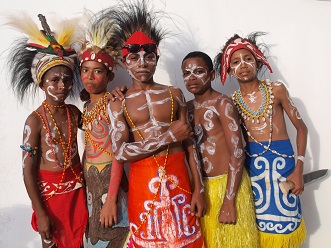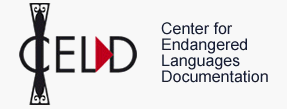
WLP focuses on the most linguistically diverse part of the world, Melanesia, which straddles countries of Southeast Asia and the Pacific. Melanesia contains around a fifth of the worldís 6,000 languages in under 3% of its land area and less than 0.2% of its population. The scope of the workshop includes all languages known as “Papuan”, plus the Austronesian languages that are spoken in the vicinity of Papuan languages in New Guinea plus parts of Indonesia, East Timor and the Solomon Islands.
These languages are astonishingly diverse, barely known to science, and face the threat of extinction without trace in the coming century unless concerted international efforts are made to meet the huge challenge of documenting them. WLP addresses the scientific issues raised by these languages, covering the whole gamut of linguistic questions from phonology to syntax to typology to historical linguistics, as well as topics bordering musicology, anthropology and prehistory; it also includes papers on digital archiving, documentary linguistics, scientific infrastructure and the training of linguists from minority language groups. In addition, WLP addresses various practical issues concerning the cultural and linguistic rights of minority groups in Indonesia, Timor Leste and Papua New Guinea, including language support and maintenance, and, in particular, the need for education programs that allow children to receive part of their schooling in their mother-tongue.
Upcoming meeting
WLP7 12–16 January 2026, Ternate, Maluku Utara, Indonesia
Previous WLPs
WLP6 17-18 July 2023, Sorong, Indonesia
WLP5 15-19 July 2019, Manokwari, Indonesia | Photo gallery
WLP4 23-26 January 2017, Manokwari, Indonesia | Photo gallery
WLP3 20-24 January 2014, Manokwari, Indonesia | Photo gallery
WLP2 8-12 February 2010, Manokwari, Indonesia | Photo gallery
WLP1 8-10 August 2007, Manokwari, Indonesia | Photo gallery
Nicholas Evans, Australian National University, Canberra / ARC Centre of Excellence for the Dynamics of Language
David Gil, Max Planck Institute for the Science of Human History, Jena
Yusuf Sawaki, Center for Endangered Languages Documentation, Manokwari




